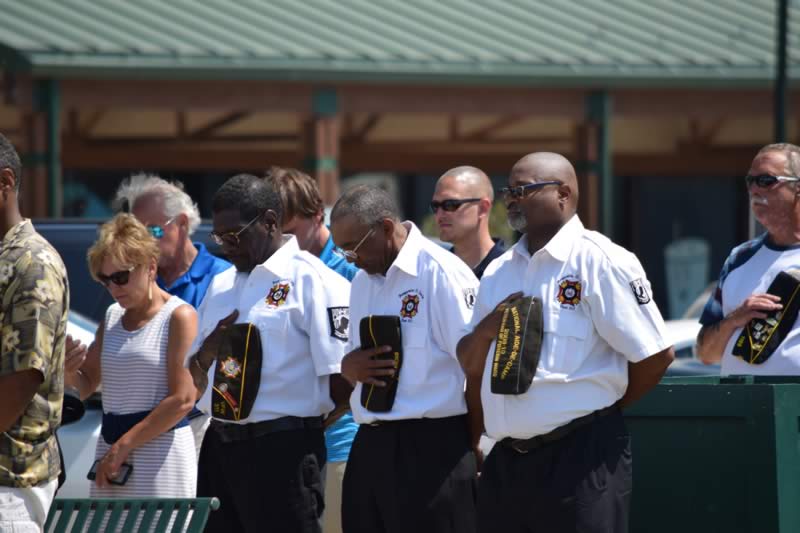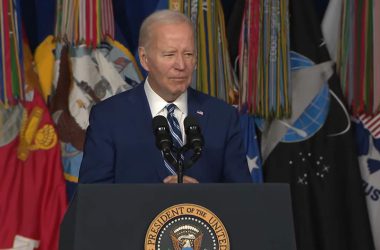Israel—(ENEWSPF)—May 15, 2014.
STAFF: Good afternoon. The State of Israel and the ministry of defense would like to welcome United States Secretary of Defense Chuck Hagel. We’re going to begin the press conference with statements from Minister of Defense Ya’alon and Secretary of Defense Hagel. Afterwards we’ll take four questions. Two questions from the Israeli press, two questions from the U.S. press, both — all of whom have been selected ahead of time.
Minister of Defense Ya’alon.
MINISTER MOSHE YA’ALON: Good afternoon, ladies and gentlemen. My dear friend, Chuck Hagel, shalom, and welcome to Israel. I am deeply honored to host you here for your second visit to Israel as secretary of defense.
Our continuous meetings and discussions, attest the deep strategic ties between the United States and the state of Israel. They also demonstrate that you, Chuck, are a good friend of the state of Israel, and I appreciate you very much.
(inaudible) indeed, you have already made clear the security of Israel is a top priority for you. I’m particularly glad that this policy continues the tradition of close relations between our governments and ministries.
So first, on behalf of the people of Israel, the state of Israel and myself personally I would like to say thank you.
Our strong and special security relations are a central component of the intimate and unshakeable bond between the United States, the leader of the free world, and the state of Israel.
Israel enjoys generous American aid, which among other things, goes to the purchase of cutting-edge U.S. military equipment, like the future fighter jet F-35 and other advanced technologies.
We are also extremely grateful for the steadfast U.S. support to vital programs to Israel’s security such as the Iron Dome system.
(Inaudible) today we will visit an Israeli Air Force base, where you will meet Americans and Israelis taking part in a key joint exercise, yet another example of our excellent security cooperation. We work closely together, sharing knowledge, technological know-how and intelligence.
But beyond that our countries share fully the most basic values of democracy, freedom and liberty.
We also share a common interest. And let me just say it is Israel’s co-interest to see a strong America continuing to play a leading role in our region and beyond. Even if there are disagreements along the way, they can not overshadow the ironclad bond we share.
Let me stress again, the U.S. contribution to the security of Israel is highly appreciated and unique. In our discussion during this visit, I look forward to covering a wide plethora of strategic and regional issues of mutual interest. Indeed, the changes in the Middle East posed for both, Israel, the only democracy in the Middle East, and the United States, the world’s leading and most important democracy unprecedented challenges, as well as new opportunities.
I’m confident that by working together, we can make our countries stronger, safer and overcome our challenges.
Again, Chuck, I would like to thank you for coming again and for everything you have done for the state of Israel, thank you.
SECRETARY OF DEFENSE CHUCK HAGEL: Thank you, Minister Ya’alon. Bogey, I am grateful for your comments and in particular, your personal comments, I appreciate it very much and it’s good to be back here, and it’s good to see you again.
It’s a particularly special privilege to be here as Israel is celebrating 66 years of independence. David Ben Gurion announced that a Jewish state would be born at the stroke of midnight on May 15th, 1948. And 11 minutes later, President Truman recognized Israel’s independence. The first world leader to do so. Ever since, Israel’s had no closer ally and no better friend than the United States of America, and today that remains true as ever.
In our meeting this afternoon, the meetings that we will have later today, and incidentally, this is our sixth meeting, Bogey. We, as you noted, discussed a number of issues, and we’ll discuss more later this afternoon. We also affirmed that our defense relationship is as strong as it’s ever been. We discussed the ongoing P5-plus-1 negotiations over Iran’s nuclear program, and President Obama’s commitment to ensuring that Iran does not acquire a nuclear weapon.
We also discussed America’s unwavering pledge to preserve Israel’s qualitative military edge, including the provision of some of America’s most advanced capabilities, such as the V-22 Osprey, the F-35, and sophisticated aircraft radar. We addressed ways to strengthen our nations’ cooperation on a host of security challenges, ranging from the conflict in Syria, to Iranian ballistic missiles. And we talked about the need for continued commitment to direct Israeli-Palestinian negotiations that lead to two viable, independent states living side by side in peace and security.
The frequent meetings that Minister Ya’alon and I have had and the visit by President Obama’s national security advisor last week speak clearly to the strength of our nations’ close friendship. They speak clearly to the strength of America’s commitment to defending Israel.
But nothing speaks more clearly than America’s concrete support for Israel’s defense. That includes $3.1 billion per year in foreign military financing, which is not only more than we provide to any other nation, but the most we have provided to any nation in American history.
Our support also includes unparalleled military cooperation, and later this afternoon, Minister Ya’alon and I are looking forward to seeing that cooperation first-hand. As he noted, we will visit Hatzor Air Force Base, where we will have an opportunity to review preparations for Juniper Cobra, a biannual five-day military exercise that will involve more than 4,000 American and Israeli troops, including over 700 U.S. troops here in Israel.
This will be our European Command’s largest exercise this year. And it will be the seventh in the Juniper Cobra series which began in 2001. It will provide training in a variety of areas, including ballistic missile defense, and other areas, along with two U.S. Aegis-class ships in the Mediterranean. The exercise will employ Israel’s entire rocket and ballistic missile architecture, including Iron Dome, Arrow, and David’s Sling: assets that the United States is proud to have helped Israel finance and develop.
In fact, just two months ago, the United States and Israel reached a milestone co-production agreement to release nearly half a billion dollars more for Iron Dome above and beyond our annual military assistance. This will support additional batteries and interceptors that will protect more Israeli communities, military bases, and critical infrastructure from rocket and mortar attack. And it will bring U.S. investment in Iron Dome alone to nearly $900 million, and our overall investment in Israel’s rocket and missile defense to well over $3 billion. Israel’s security is and will always be non-negotiable.
Military-to-military cooperation between the United States and Israel is stronger than ever, as the exercise we are reviewing today demonstrates. And Minister Ya’alon and I are both committed to ensuring that it not only stays that way, but it grows stronger.
Every time I visit Israel, I am reminded of Theodor Herzl’s words: “if you will it, it is no dream.” I am reminded of the strength, the resilience, and the optimism of the Israeli people. And I am reminded of why America’s commitment to a strong and secure Israel has not and never will be anything but complete and unwavering.
Thank you very much. Thank you. Thank you.
STAFF: Thank you, Secretary. And now move to questions.
(inaudible) channel two.
Q: It’s going to be a 2-question question for you. First, Mr. Hagel, do you worry from the United States changing position in the Middle East in the last few months? And for you, Mr. Ya’alon, is Israel consider again an active step or act against Iran if the negotiation will be failed?
Thank you.
SEC. HAGEL: May I ask for clarification on your question? You asked the question, do I worry about the United States changing position in the Middle East?
I’m not — I’m not sure what you mean, changing position in the Middle East.
Q: The reduce of the influence, I mean.
SEC. HAGEL: Reduce of the…
Q: Influence.
SEC. HAGEL: I don’t think our influence has been reduced. We have 35 — over 35,000 military personnel in the Middle East. We have the fifth fleet headquartered in the Middle East. We have CENTCOM [Central Command] headquarters in the Middle East. We have tremendous amounts of sophisticated aircraft, weaponry, assets, in this region. We work closely with our partners here. I was just in Saudi Arabia, where I had met with the defense ministers of the GCC [Gulf Cooperation Council] countries. Was in Jordan yesterday before I got here last night. Our partnerships, our relationships remain strong and we’re committed to this region.
And I made that very clear to the GCC defense ministers yesterday, and I think my statement here and my presence here certainly makes it very clear we’re committed to — to Israel. Thank you.
MIN. YA’ALON: Regarding the Iranian threat. I believe the United States and Israel share the same goal: not to allow a military nuclear Iran. And I believe that we share the same assessment regarding intelligence, predicting what might come out in the future. We might have differences, even disputes regarding how to get to it. But we have the open channels as we have Secretary of Defense and myself, Ambassador Rice, while she was here, speaking with our prime minister, and other channels.
The bottom line is that Israel should be ready to defend itself by itself.
STAFF: Second question will be from Bob Burns, Associated Press.
Q: Thank you. Question for both of you about Iran.
Mr. Minister Ya’alon, do you believe the U.S. is too invested in getting a — a deal with Iran? And also, along the same lines, are you concerned that the Iranians are only playing for time?
Mr. Secretary, may I ask you, as Minister Ya’alon alluded to a moment ago, Israeli officials have said from time to time that they may feel compelled to strike unilaterally against Iran at some point if they get too close to having a nuclear weapon.
How much time do you believe that the U.S. and Israel can wait before it’s too late?
MIN. YA’ALON: I’ll take it. When Israel considers Iranians a threat and the first priority, not just military nuclear site. While we are speaking, while we are witness the political engagement, the P5-plus-1, and the Iranian regime. The Iranian regime is still active on many areas. What is in stake now regarding the diplomacy is actually the fuel cycle of the military nuclear project. We do worry about delivery systems, the recognization part of the project. And of course, about the terror activities perpetrated, pushed, supported, financed by the Iranian regime all over the region and beyond.
(inaudible) interception of the shipments of armament from (inaudible) in Iran on the way to Sudan and the destination of the Gaza state, just one example.
But we can find the Iran fingerprints in Afghanistan, not serving American interest in Iraq, actually gaining hegemony in Iraq. In Bahrain and Yemen, in Syria, Lebanon, Palestine, Africa, South America, and so forth.
So, in this regard, we can’t claim the United States is too invested in this issue. I believe that it should be in the first priority of each of us and to deal with the threat by all means in all fields in order not to allow this (inaudible) to gain hegemony and of course to threaten the stability of this region and the globe because of its messianic, apocalyptic worldview, which hasn’t been changed even while watching the (inaudible).
SEC. HAGEL: Bob, regarding your question. First, as you know, the current P-5-Plus-1 negotiations going on in Vienna, are not indefinite. There’s a timeframe on – on those nuclear negotiations. Now that said, you also know, and I repeated here in my statement, that President Obama has said that he will not allow Iran to obtain a nuclear weapon. Because we are on a diplomatic track with a timeframe, does not preclude all of the other security defense measures that we continue to pursue outside that diplomatic track, including this relationship with – with Israel.
STAFF: Thank you. [inaudible], Israeli Channel 10 News?
Q: Thank you Defense Minister and Defense Secretary Chuck Hagel. Lately we heard numerous remarks, or statements by U.S. officials that Israel continued to spy on American soil and against American interests, even after the Jonathan Pollard case, or affair. Can you confirm it, or deny it? Are you aware of any Israeli spying in the U.S. or – or not? And Defense Minister Moshe Ya’alon, do you regret that you said lately that the Obama Administration is weak and do not understand the Middle East? And are – does Israel ask for – to increase the – the American support – the American support, even – even more than this $3 million [stet: billion] a year? Thank you.
SEC. HAGEL: As to your question, I have heard of that report. I am not aware of any facts that would substantiate that report.
MIN. AY’ALON: I just want to support your answer, Chuck. As a former head of the intelligence, I wasn’t allowed to spy in the United States whatsoever and as Defense Minister, I don’t allow to spy in the United States whatsoever. And it is linked to your second question. I am responsible for what I say. I am not responsible for misquotations, or misinterpretation. And as you can see, we have open channels between the administration, not only the defense ministries, to share views, to share assessments, to share reservations, or disagreements about both of us, as I believe we share the same interests, as I said in my remarks, and the same values.
So, yes. Our interest is, yes, to have a strong America, and I believe that America is the strongest power all over the world today.
STAFF: Final question, Margaret Brennan, CBS News.
Q: Minister Ya’alon, thank you. The question for you, does Israel have evidence of a recent poison gas attack in Syria? Also, the U.S. negotiator has singled out Israel really for fault. The key reason that peace talks failed, between Israel and Palestine. What’s your reaction to that? And if you would just clarify my colleague here’s question here. I think the quotes that he’s referring to are when you called John Kerry, the secretary of state, obsessive and messianic. And then in March, you said that the U.S. is demonstrating weakness in Ukraine, feebleness in Russia and China and the Middle East.
So, could you explain what you meant and what you’d like the U.S. to do?
MIN. YA’ALON: I believe to your last question, I’ll answer to your former colleague, and that’s it.
Regarding poisoning attacks or using of chemical agent in Syria, we still see it now. There were a couple of incidents, in which Syrian armed forces used poison. We follow it; we watch it. It might be what is called neutralizing materials, not the materials that we witnessed in the past, as the Syrians are in the process to be disarmed from the chemical agents.
But even recently it is — it has been published, yes, they used poisons against civilians, like chloride and other materials, which, of course, should be unacceptable by the international community.
Regarding the Israeli-Palestinian talk, I believe that as one who was personally involved in the process, we witnessed, again, the Palestinian rejection to recognize Israel’s right to exist as a nation-state of the Jewish people.
And, unfortunately, this is a cause of the conflict. It’s not about (inaudible) just a rhetorical compromise whatsoever. And we hear during this specific nine months of political process from Abu Mazen, Mahmoud Abbas, saying clearly it is not just we’re not ready to recognize Israel as a Jewish state. I’m not ready even to start talking about it.
And this is part of the core of the conflict.
There are other two parts which we consider very much, and they responded negatively. One is what they call the right (inaudible) and the second is about any final settlement based on territorial compromise, (inaudible) line, should be considered as the end of continued (inaudible) of claims. He is not committed to it.
So that’s why we failed again, not for the first time.
Actually, he is very consistent. He escaped all our proposal, our former prime minister proposal of 2008, like Arafat escaped our prime minister at that time, Barak, proposal in Camp David. Or some other petitioned, planned proposals in our history.
And this is the core of the conflict.
It’s not what they call occupation since ’67 which is going to be concluded along ’67 lines. We had this conflict for more than 100 years; it’s not from ’67. And unless we will see on the other side a partner who is ready to recognize our right to exist as a Jewish (inaudible) in any (inaudible), it can’t be the end of the conflict and the finality of claims.
We are still waiting. We should be patient and looking for peace on the one hand, without illusions on the other hand.
STAFF: Secretary of Defense, thank you.
Minister of Defense Ya’alon, thank you.
SEC. HAGEL: Thank you.
MIN. YA’ALON: Thank you.
SEC. HAGEL: Thanks.
Source: defense.gov








